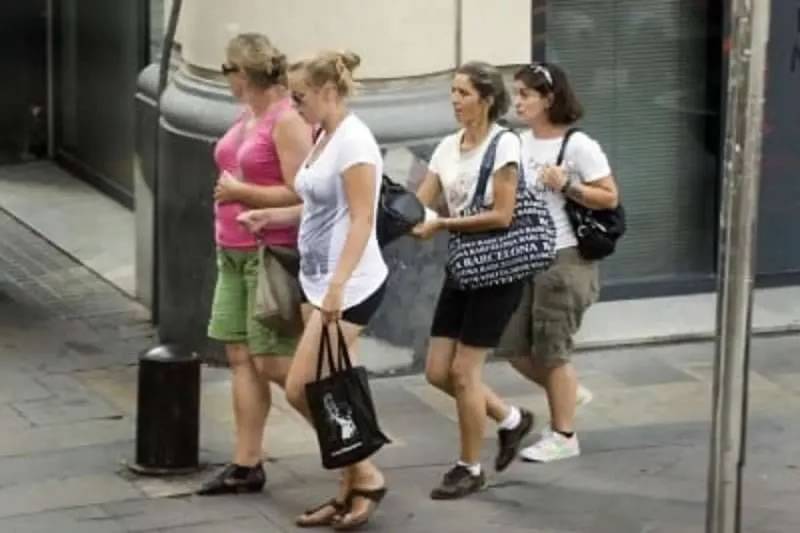WARNING: Pickpockets are rife again on the streets of the Canary Islands
- 24-02-2025
- National
- Canarian Weekly
- Photo Credit: CW Stock Image
Being the number one destination in Europe for winter sun with millions heading to the archipelago to escape the cold of their own country, means that the Canary Islands also attracts some unwelcome guests in the form of pickpockets.
These opportunist thieves who take advantage of unaware tourists not taking as much care as they normally would do whilst on their holidays.
Social media is full of people complaining and warning about their presence in various holiday resorts, including Playa de Las Americas, Los Cristianos, and Callao Salvaje in Tenerife, Playa Del Ingles in Gran Canaria, and Puerto del Carmen in Lanzarote.
The thieves, who spend summer in other resorts across Spain and Europe, come here every winter and also target rent-a-cars, particularly when parked in isolated areas at tourist hotspots, taking high-value items left inside in just a few minutes.
Every year the police advise and warn people to be more careful by not carrying much money on them, not having PIN numbers and cards in wallets, being attentive to any strangers approaching them for any reason, and not leaving valuables on show in cars.
People are constantly complaining that the authorities don’t do anything about the pickpockets, as they have seen them back on the streets after being arrested by the police, however, the police have also complained that they are powerless to do anything unless they are caught in the act.
In 2022 a new law was passed that gave them more power to charge them, as the ‘value amount of possession’ was lowered to make it easier for them to be arrested, charged or imprisoned.
Changes to the Penal Code
A reform of the Penal Code, which now includes prison sentences of up to 18 months for petty theft for re-offenders, was introduced in August 2022 in response to the demands by sectors such as tourism, which is especially tainted by this scourge.
Pickpockets targeted Spain and the Canary Islands as they were aware of the loopholes in the law knowing they could ‘get away’ with it, which has always angered residents of the islands who have posted photos of pickpockets in action on social media asking why the police don’t do anything when in reality they have been powerless.
According to its wording in the BOE, section 2 of article 234 of the Penal Code was modified to give "an adequate response to cases of multiple recidivism". It is explained that the reform is "necessary" because, although the previous regulation already provided for an aggravated modality for repeat theft, according to Supreme Court doctrine this was intended to punish thefts that exceeded 400 euros.
This interpretation of the Supreme Court doctrine, supposed that the minor crimes of theft that are committed by a multi-repeat offender "do not have a sufficient criminal response, even though they are of growing concern for directly affecting not only tourism, trade, and the economy in general but also to the safety of citizens”.
In practice, this meant that the criminals were aware of the 400 euros limit, knowing that, no matter how many times they were taken to court, they practically entered through one door and exited through the other. But now minor thefts can be punished more severely.
The BOE states that to avoid the disproportionate jump in sentence, it is decided to increase the sentence for these minor thefts, but without reaching the aggravated prison sentence of article 235.1 of the Penal Code.
This means that, in cases of minor theft of less than 400 euros, which usually applies to pickpockets, the penalty is applied for repeat offenders taking into account the combined total amount they have stolen, not the amount individually each time, and gives the police more incentive to arrest them and the courts more power to charge them accordingly.
However, has it actually made a difference?
Other articles that may interest you...
Trending
Most Read Articles
Featured Videos
TributoFest: Michael Buble promo 14.02.2026
- 30-01-2026
TEAs 2025 Highlights
- 17-11-2025



























































